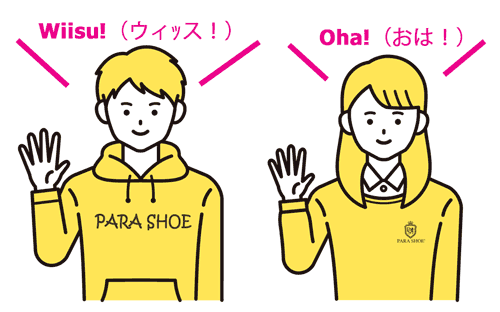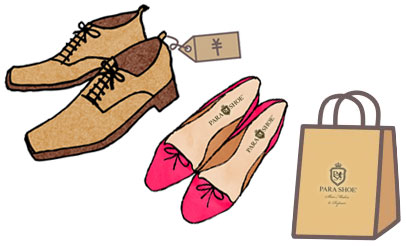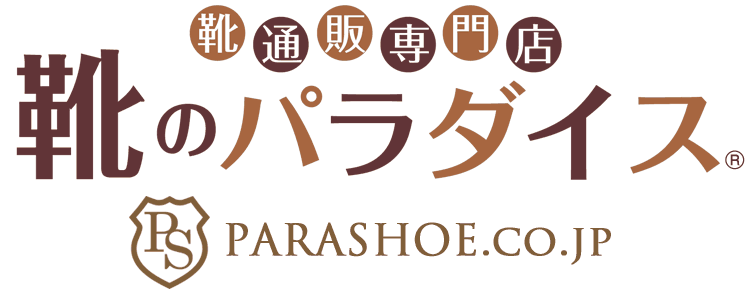
We will introduce Japanese words that are not official and are not often found in teaching materials or textbooks. These are also called「wakamono-kotoba(若者 言葉/youth language)」. It also includes dialects used on a daily basis. It’s useful to remember something.
(正式ではなく、なかなか教材や教科書に載っていない日本語をご紹介します。これらは「若者言葉」とも呼ばれます。また、日常的に使われる方言も含んでいます。なにかと、覚えておくと便利です。)
【A group(あ行)】|a(あ)|i(い)|u(う)|e(え)|o(お)|
【KA group(か行)】|ka(か)|ki(き)|ku(く)|ke(け)|ko(こ)|
【SA group(さ行)】|sa(さ)|shi(し)|su(す)|se(せ)|so(そ)|
【TA group(た行)】|ta(た)|ti・chi(ち)|tsu(つ)|te(て)|to(と)|
【NA group(な行)】|na(な)|ni(に)|nu(ぬ)|ne(ね)|no(の)|
【HA group(は行)】|ha(は)|hi(ひ)|hu・fu(ふ)|he(へ)|ho(ほ)|
【MA group(ま行)】|ma(ま)|mi(み)|mu(む)|me(め)|mo(も)|
【YA group(や行)】|ya(や)|yu(ゆ)|yo(よ)|
【RA group(ら行)】|ra・la(ら)|ri・li(り)|ru・lu(る)|re・le(れ)|ro・lo(ろ)|
【WA group(わ行)】|wa(わ)|wi(うぃ)|wo(を)|
(explanation:Nobuyuki Oshima/説明文:靴のパラダイス店長 大嶋信之)
A group(あ行)
a(あ)
aitsu(あいつ)
=that person
aitsu-ra(あいつら)
=Those guys
azaasu(あざーす)
=thank you
Words that break down “arigatou gozaimasu(ありがとう ございます)/Thank you”
acchi(あっち)
=there, Over there
Abbreviation for “achira(あちら)=there”
→kocchi(こっち)
i(い)
ikashita(イカした)
=cool、nice
reference→iketeru(イケてる)
ikeike(イケイケ)
=powerful, cool, fearless
Example:
ikeike na otoko(イケイケ な 男)=a man of strength, A stylish and cool man, a fearless man
ikete-nai(イケてない)
=noto cool、not good、not nice、bad
reference→iketeru(イケてる)
iketeru(イケてる)
=cool、nice
「iketeru(イケてる)」means cool. It is used to mean being trendy (suiting the times) or fashionable.
It is sometimes used as「ikashita(イカした)~/cool ~」.
Also,the negative form is「ikete-nai(イケて-ない)/not cool,not good」.
Example of use:
・mecha iketeru(めちゃ イケてる)=really cool,really good
・kutsu ga iketeru-ne(靴 が イケてるね)=Your shoes are cool.
・ikashita kutsu dane(イカした 靴 だね)=Your shoes are cool, Those are cool shoes
・fuku ga ikete-nai(服 が イケて ない)=My clothes don’t look good
ikemen(イケメン)
=handsome guy, cool guy
Originated from「iketeru-mens(イケてるメンズ・男子)」
imoi(イモい)
=Not cool
In Japan, imo(イモ、芋/potato) is sometimes used in a derisive way.
u(う)
uiissu!(うぃっす!)
=Hi, Hello
umai(うまい)
=oishii(美味しい)=delicious
=jyouzu(上手)=good
synonym:umee(うめえ)
Example:
mecha umai ramen(めちゃ うまい ラーメン)=very delicious ramen
ramen ga sugee umee(ラーメン が すげえ うめえ)=the Ramen is very delicious
kare ha(wa), sakkaa ga umai(彼は、サッカーが上手い)=he is good at soccer
umee(うめえ)
=delicious
=good
Reference →umai(うまい)
e(え)
o(お)
osu!(おす!)・ossu!(オッス!)
=hi!, hello!
Origin of the word「押忍(おす、おっす/osu,ossu)」.
「押忍(osu,ossu)」is a greeting used mainly among people involved in martial arts such as karate(空手), kendo(剣道), and judo(柔道).
otsu!(おつ!)
=Good job!, Thanks, Thank you for your hard work, Bye
Abbreviation for “otsukare-sama-desu(お疲れ様です)/Thank you for your hard work”
okkanai(おっかない)
=scared, fear
oha!(おは!)
=good morning!
Abbreviation for “Ohayou(おはよう)/good morning”
oni(鬼、オニ)
=extremely(emphasis word)
Meaning of “strong like a oni(鬼=demon)”
Example:
tenisu ga oni umai(テニス が 鬼上手い)=very good at tennis
omae(お前)
=you
Sometimes it is also called「omae-san(お前さん)」by adding「san(さん)/Mr. Miss.」to be polite.
→temee(てめえ)
onushi(お主、おぬし)
=omae(お前)=you
omoroi(おもろい、オモロイ)
=interesting, amusing, laughable
Originated from “omoshiroi(面白い)/interesting”
ore(俺、おれ、オレ)
=I, me (male)
When you say something bossy, say “ore-sama(俺様)”
KA group(か行)
kami(神)
=master, benefactor
kami-taiou(神対応)
=perfect and kind, like a god
Example:
sakki no kare no okyaku heno taiou ha(wa) kamitaiou datta(さっきの、彼 の お客 への 対応 は、神対応 だった)=His response to the customer just now was divine.
ka(か)
kakkoii(カッコイイ)
=cool
The origin of the word “kakkou-yoi(格好 良い)/cool”
gan(ガン、がん)~
=very, extremely
“Gan” is a word that can be interpreted as an onomatopoeic word that expresses the intensity of sound and force.
Synonym:mecha-mecha(めちゃめちゃ)、鬼(おに)
Example:
nedan ga, gan takai(値段が、がん高い)=price is very high
ki(き)
kimoi(キモい)
=Bad feeling
An abbreviation for “kimochi warui(気持ち 悪い)/Bad feeling”
kisyoi(キショい)
=Creepy
An abbreviation for “kisyoku warui(気色 悪い)/Creepy”
gyagu(ギャグ)
=joke
ku(く)
kusa(くさ、クサ、草)
=laugh
The origin of the word is grass(草).
“laugh” is “warau” in Japanese.
On SNS, laughter was expressed with the first letter “w” of warai, and the word “W” looks like grass.
Example:
kimi no gyagu ga subette kusa!(君 の ギャグ が スベって くさ!)=I laughed because your joke didn’t catch on.
kuso(クソ)
=outrageously, very
emphasis word
Example:
kuso warota(クソ ワロタ)=It was ridiculously funny
kuso omoroi(クソ おもろい)=very funny
kuso baka(クソ 馬鹿)=very foolish
ke(け)
geki(激、げき)
=very, extremely
Example:
geki okori(激怒り)=gekido(激怒)=furious
kono senzai ha(wa) geki-ochi da(この 洗剤 は 激落ち だ)=This detergent is extremely effective.
kare ha(wa) geki-butori shita(彼 は 激太り した)=he got very fat
kerotto(ケロッと)
=dramatically reverse
Meaning of「The crying face suddenly smiled」
Example:
kaze ga kerotto yoku natta(風邪が、ケロッと良くなった)=my cold suddenly got better
ko(こ)
goisuu(ごいすー、ゴイスー)
=It is amazing
It has the same meaning as「sugoi(凄い)、sugooi!(すごーい!)、sugo!(すご!)/It’s amazing!」and is sometimes used instead.
kosyobai(こしょばい)
=tickles
local dialect
gochappe(ごちゃっぺ)
=bullshit, lie, sloppy
Local dialect (Ibaraki prefecture)
Example:
gochappe iuna(ごちゃっぺ 言うな)=don’t bullshit, Don’t say anything sloppy
kocchi(こっち)
=here
Abbreviation for “kochira(こちら)=here”
→acchi(あっち)
gottsu(ごっつ)
=very, super
Example:
gottsu iketeru(ごっつ イケてる)=very cool
konchi-yaasu(こんちやーす)
=hi, hallo
Informal way to say “kon nichi wa(こんにちは)/Hello”
konchi-waasu(こんちわーす)
=hi, hallo
Informal way to say “kon nichi wa(こんにちは)/Hello”
Sometimes abbreviated as “chiwaasu(ちわーす)“
SA group(さ行)
sa(さ)
shi(し)
syareotu(シャレオツ)
=fashionable
Origin of the word “osyare(おしゃれ)/fashionable”
~jyan?(~じゃん?)
=Isn’t it?
When asking for consent, it is sometimes said “~jyan-ne?(~じゃんね?)”and “~jyan-ka?(~じゃんか?)”
Example:
Baka jyan?(馬鹿 じゃん?)=Are you an idiot?
kou jyan?(こう じゃん?)=Isn’t it like this?
shoumonai(しょうもない)
=It can not be helped
Origin of the word “dou siyou mo nai(どう しよう も ない)=there is nothing we can do”
It is sometimes abbreviated as “syoumona(しょーもな)”
shinda(死んだ)
=It’s over, game over
It is also called「tsunda(つんだ)」in a different way.
su(す)
sugee(すげえ、スゲエ、スゲー)
=very
「sugee(すげえ、スゲー)」is also used with the same meaning as 「sugoi(すごい)」.
Example of use:
・sugee kirei(すげえ 綺麗)=very beautiful
・nedan ga sugee takai(値段 が スゲー 高い)= price is very high=very high price=very expensive
sugoi(すごい、スゴイ)
=very, amazing
「sugoi(スゴイ)」originally means 「amazing(凄い、すばらしい)」but it is very often used as an adjective similar to「very(とても、非常に)」.
Example of use:
・sugoi kirei(すごい 綺麗)=very beautiful
・nedan ga sugoi takai(値段 が すごい 高い)= price is very high=very high price=very expensive
sugo!(すご!)
=It’s amazing
Abbreviation for “sugoi!(凄い!)”
sugooi!(すごーい!)
=It’s amazing
Origin of the word “sugoi!(凄い!)”
suberu(スベる)
=The joke didn’t go well ,jokes are not funny at all, joke didn’t catch on
Past tense:subetta(スベった)
Example:
gyagu ga subetta(ギャグ が スベった)=The jokes didn’t go well at all
se(せ)
so(そ)
soku(ソク、即)
=Immediately, right away
Example:
soku hajimeyou(即 始めよう)=Get started now
sokkoo(ソッコー)
=Immediately, haste, right away, the fastest
Origin of 「haste(速攻/そっこう)」.
sokkou de onegai-simasu(ソッコー で お願いします)=Please do it as soon as possible
TA group(た行)
ta(た)
dasai(ダサい)
=It’s lame, uncool
Synonym:ikete-nai(イケてない)
Example:
kare no fashion ha(wa) dasai(彼 の ファッション は ダサい)=his fashion is lame
ti・chi(ち)
chiisu!(ちーす!、チース!)
=Hi, Hello
chito(ちと)
=Just a little bit, a little, a bit
Abbreviation for “chotto(ちょっと)/a little bit”
Example:
chito samui(ちと 寒い)=A little cold
chou・choh(超/ちょー)
=super
「chou・choh(超、ちょー)」originally means 「transcendence(超越)」and may be similar to「super(すばらしい)、very very(本当に本当に)」English.
Example of use:
・chou sugoi!(超すごい!)=super amazing
・nedan ga choh takai(値段 が ちょー高い)= price is very very high=very expensive
chouzetsu(超絶)
=super、transcendence
It has the same meaning as「chou・choh」is also used with the same meaning as 「chouzetsu(超絶)」.
However, if anything, it has a more emphasized meaning than「chou・choh」.
Example of use:
・chouzetu umai(oishii)(超絶 うまい,美味しい)=Super delicious
choi(ちょい)
=Just a little bit, a little, a bit
Abbreviation for “chotto(ちょっと)/a little bit”
Example:
choi samui(ちょい 寒い)=A little cold
choppaya de(チョッパヤで)
=at the fastest
Shortened word meaning「chou hayaku(超早く)」
chiwaasu!(ちわーす!)
=Hi, Hello
Abbreviation for「konchi-waasu(こんちわーす)」
tsu(つ)
tsuuka(つーか)
=I mean, Well, by the way, Or rather
It is a conjunction.
Abbreviation for 「tte iuka(っていうか)、to iuyori(というより)=Or rather, I mean」
used as「tsuuka saa, ~(つーか さー、~)」etc.
→teka(てか)
tsunda(つんだ)
=It’s over, game over
Words that are synonymous with「shinda(死んだ)」but are pronounced differently.
te(て)
teka(てか)
=I mean, Well, by the way, Or rather
It is a conjunction.
Abbreviation for 「tte iuka(っていうか)、to iuyori(というより)=Or rather, I mean」
used as「teka saa, ~(てかさー、~)」etc.
→tsuuka(つーか)
temee(てめえ、テメエ、てめー)
=you, own
How to say “You” while looking down on someone
→omae(お前)
to(と)
doumo doumo(どうも どうも)
=Hello
don-biki(ドン引き)
=very hiku, I feel very backwards, receive a shock, not in my ethics
Example:
kare no koudou ni don-biki shita(彼 の 行動 に ドン引き した) =I was shocked by his actions.
NA group(な行)
na(な)
naiwaa(ないわー)
=That’s not common knowledge
naui(ナウい)
=fashionable, cool, fit the trend
A word coined by adding “i(い)” to “now(ナウ)” which means now.
nazoi(謎い)
=mysterious
A word coined by adding “i(い)” to “nazo(謎)/mystery”
nanka(なんか)
=something
Example:
nanka tsumaranai(なんか つまらない)=It’s kind of boring
nanto(なんと)
=whopping
Example:
tesuto ga nanto hyaku-ten desita(テスト が なんと 100点 でした)=The test was a whopping 100 points.
ni(に)
nu(ぬ)
ne(ね)
no(の)
HA group(は行)
ha(は)
haipar(ハイパー)
=hyper, super, crazy, very
Originated from “hyper”
Example:
haipar sugoi(ハイパー すごい)=It’s crazy amazing
bakudan(爆弾)
=trigger
「bakudan(爆弾)」means ”bomb” in English.
For example, it is used in the sense of revealing someone’s secrets or dropping a trigger that will make them angry.
Example:
kaiwa no tochuu ni bakudan wo otosu (会話 の 途中 に 爆弾 を 落とす)=Drop a “bomb(Exposure and anger triggers)” during a conversation
hacha-mecha(はちゃめちゃ)
=very、super、extremely、really
reference→mecha(めちゃ)
pa-nai(パない)
=hanpa-nai(ハンパない)
Abbreviation for「hanpa-nai(ハンパない)」.
bari、bali(バリ、ばり)
=very, extremely
Example:
bari(bali) umai=very delicious
bari-kuso、bali-kuso(ばりクソ)
=very、super、extremely、really
Example:
kanojyo ha(wa), bari(bali)kuso kawaii(彼女 は、ばりクソ かわいい)=she is very cute
hanpa-jya-nai(ハンパじゃない、半端じゃない)
=So amazing
Origin of the word “not half-hearted”
hanpa-nai(ハンパない、半端ない)
Abbreviation for「hanpa-jya-nai(ハンパじゃない)」
hi(ひ)
hiku(引く)
=feeling backwards
Feeling like you want to take a step back.
synonyms:don-biki(ドン引き)
Example:
hiku waa(引くわー)=it’s not my common sense
bimyou(微妙)
=subtle、It’s hard to rank、It’s hard to choose、neither good nor bad、not very good
It means “neither good nor bad,” but it is rather negative.
For example, when someone asks you, “君のあの仕事、良かったね?/That job of yours was good, wasn’t it?”, you might answer, “微妙です(自分の思ってたより、あまり良くなかったです)/It’s not good”.
Example:
tesuto no kekka ha(wa) bimyou datta(テスト の 結果 は 微妙 だった)=The test results were not good(neither good nor bad).
hu・fu(ふ)
he(へ)
ho(ほ)
MA group(ま行)
ma(ま)
maji(マジ)
=really
Origin of the word “majime(真面目)/serious”
Example:
maji de sugoi(マジ で すごい)=really amazing
maji?(マジ?)=(seriously) Really?
mi(み)
mirakulu(ミラクル)
=miracle
Example:
mirakulu na koto ga okita(ミラクル な 事 が 起きた)=A miraculous thing happened
mu(む)
me(め)
mecha(めちゃ)
=very、super
「mecha(めちゃ)」is also used with the same meaning as 「sugoi(すごい)」and「chou(超)」.
However, if anything, it’s a stronger phrase than「sugoi(すごい)」.
Therefore, it has the same meaning as「very(とても、非常に)」.
There are times when people say, 「meccha(めっちゃ)」.
Also, sometimes I repeat 「mecha-mecha(めちゃめちゃ)」 twice for emphasis.
「mecha-mecha(めちゃめちゃ)」means「Extremely(非常に)、really(本当に)」.
The words「mecha-kucha(めちゃくちゃ)」and「hacha-mecha(はちゃめちゃ)」are also used with the same meaning as「mecha-mecha(めちゃめちゃ)」.
Example of use:
・mecha sugoi(めちゃ すごい)=very amazing
・mecha kirei(非常に 綺麗)=very beautiful
・nedan ga meccha takai(値段 が 非常に 高い)= price is very high=very high price=very expensive
・mecha-kucha niatteru(本当に 似合ってますよ)=It really suits you
・mecha-mecha niatteru(本当に本当に 似合ってますよ)=It suits you so well
・mecha-kucha omoshiroi hito desu(めちゃくちゃ 面白い 人 です)=He’s a really interesting person
・hacha-mecha omoshiroi(はちゃめちゃ面白い)=It’s crazy funny
meccha(めっちゃ)
=very、super
reference→mecha(めちゃ)
mecha-mecha(めちゃめちゃ)
=very、super、extremely、really
reference→mecha(めちゃ)
mecha-kucha(めちゃくちゃ)
=very、super、extremely、really
reference→mecha(めちゃ)
mo(も)
moo!(もー!)
=anymore
It is means「Don’t worry about it anymore」
YA group(や行)
ya(や)
yaba!(ヤバ!・やば!)
=yabai(やばい)
yakko-san(やっこさん)
=you, he
yabba!(ヤッバ!・やっば!)
=yabai(やばい)
yabbee(やっべー)
=yabai(やばい)
yahhoo!(やっほー!)
=Hallo
「yahhoo!(やっほー!)」is a Japanese shout that is used to echo in the mountains. That shout became a greeting.
yabai(やばい、ヤバい)
=terrible、dangerous、crasy
“Yabai” usually means “dangerous” and is often used to mean “terrible.” However, sometimes it is used in a positive way.
For example,「kare no fashion sense ha yabai(彼 の ファッション センス は ヤバい)」is sometimes used to mean「His fashion sense is really amazing」or「His fashion sense is crazy」.
It is abbreviated as「yabee ~(やべー ~)」,Sometimes people say「yabame na ~(やばめ な ~)」differently,Sometimes we say 「yaba-sugi(やば 過ぎ)」to emphasize “ヤバさ(dangerousness)”.
Example of use:
・yabame na fashion(ヤバめな ファッション)=crazy fashion
・hare no coordinte ha(wa) yabee na(彼の コーディネート は やべー な)=His fashion coordination is terrible(negative expression)or His fashion coordination is really amazing(positive expression)
yabame(やばめ、ヤバめ)
=It feels terrible
Reference →yabai(やばい)
yabasa(ヤバさ、やばさ)
=dangerousness
Reference →yabai(やばい)
yabasugi(やば過ぎ、ヤバ過ぎ)
=more dangerous、more(too) yabai
Reference →yabai(やばい)
yabee(やべー、やべえ)
=yabai(やばい)
yaruu(やるー)
=yarunee(やるねー)
yarunee(やるねー)
=that’s amazing、good doer
Originally it meant “yarite dane(やり手 だね)/good doer”
yu(ゆ)
yo(よ)
RA group(ら行)
ra・la(ら)
ri・li(り)
ri(り)
=I got it, roger, understanding
Abbreviation for「ryoukai (了解)/I got it」to the extreme.
Often used in SNS chats.
ryo(りょ)
=I got it, roger, understanding
Abbreviation for「ryoukai shimashita(了解しました)/I got it」.
Often used in SNS chats.
ru・lu(る)
re・le(れ)
ro・lo(ろ)
WA group(わ行)
wa(わ)
wai(わい)
=I, me (male)
washi(わし)
=I, me (male)
Originated from “watashi(わたし)=I “
washa(わしゃ)
=I am (male)
Originated from “washi ha(wa)(わし は)=I am”
warota(ワロタ)
=laughed, It was funny
Originated from “waraeta(笑えた)/It made me laugh”
wi(うぃ)
wiissu!(ウィッス!)
=Hi, Hello
wo(を)
Related pages(関連ページ)

『Buy(shopping)shoes in japan』-Japanese words and conversation used when shopping at Japanese shoe stores(『日本で靴を買う(ショッピング)』-日本の靴屋で買い物をする際に使われる日本語の単語と会話)
We will explain the English translations of Japanese words and conversation used when shopping at Japanese shoe stores. Please use this information when buying shoes in Japan.
(日本の靴屋で買い物をするときに使われる、日本語の単語と会話の英語訳を説明します。日本で靴を買う際に、ぜひお役立てください。)
